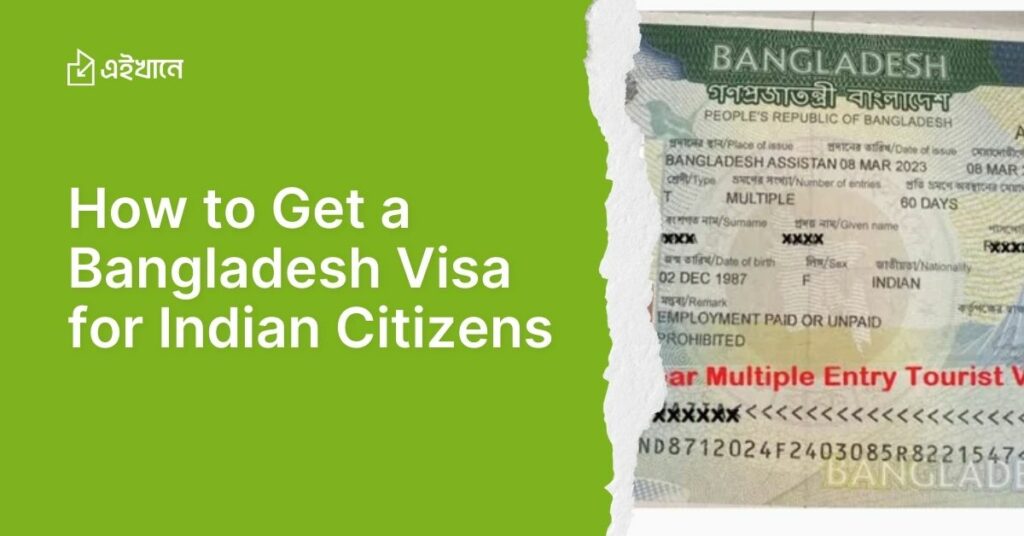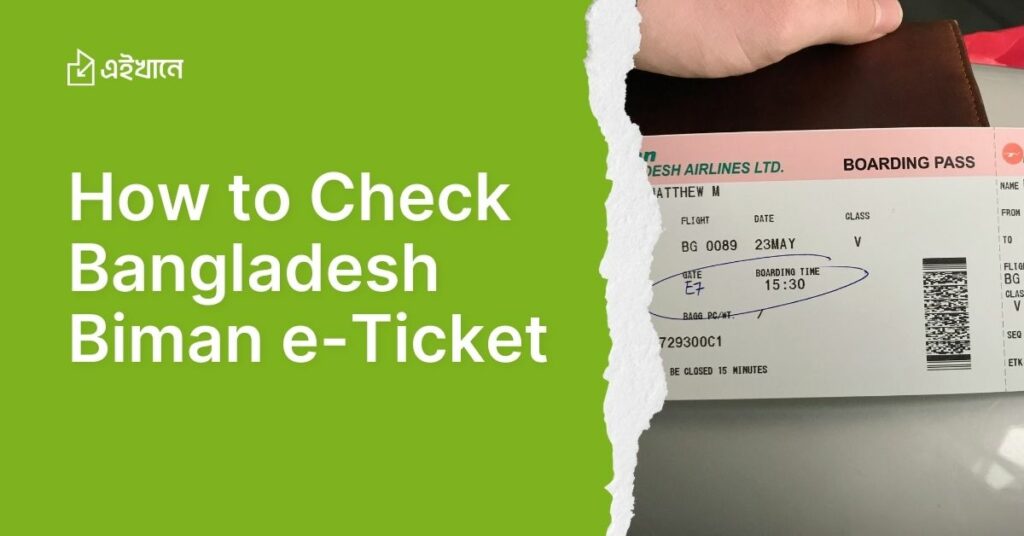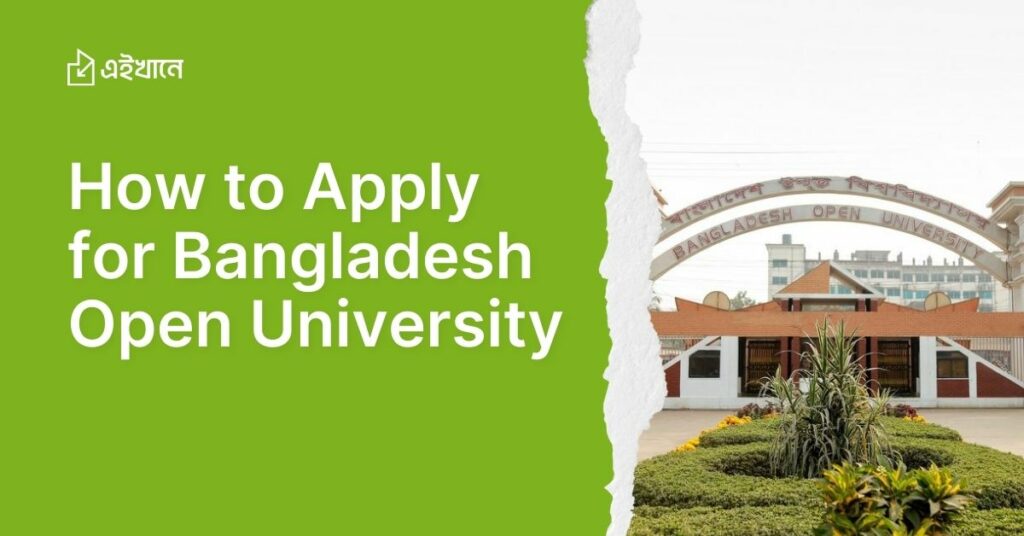Step-by-Step Guide: Converting Indian Citizenship to Bangladeshi Nationality
Step 1: Verify Your Eligibility for Bangladeshi Citizenship
Before applying for Bangladeshi nationality, it is essential to confirm your eligibility under the Bangladesh Citizenship Act of 1951 and subsequent amendments. Individuals born in Bangladesh or who have resided in the country for a specific period may be eligible. Additionally, if you have Bangladeshi ancestry or are married to a Bangladeshi citizen, you could apply for citizenship by naturalization or descent. Review these criteria to ensure you meet the legal requirements.
Step 2: Renounce Indian Citizenship
India does not allow dual nationality, meaning you must renounce your Indian citizenship before acquiring Bangladeshi nationality. To do this, you will need to submit an official application for renunciation of Indian citizenship to the Ministry of Home Affairs in India. Once your application is processed, the Indian government will issue a Certificate of Renunciation, which you will need as part of your Bangladeshi citizenship application.
Step 3: Apply for a Long-Term Visa or Residency Permit in Bangladesh
To begin the transition process, you may require a long-term visa or residency permit to live legally in Bangladesh while your citizenship application is processed. These permits can be obtained through the Department of Immigration and Passports in Bangladesh. You may need to provide documents like proof of Indian citizenship, a valid passport, and proof of residence in Bangladesh, such as a rental agreement or utility bills.
Step 4: Submit the Bangladeshi Citizenship Application
Once you meet the residency or other eligibility criteria, you can submit your citizenship application at the Ministry of Home Affairs in Bangladesh. The application typically requires identification documents, proof of renunciation of your prior citizenship, and any relevant paperwork such as marriage certificates, birth certificates, or work permits. Ensure all forms are filled out thoroughly and accurately to avoid delays.
Step 5: Attend an Interview and/or Examinations
Depending on the type of citizenship being sought (e.g., by naturalization or descent), you may be required to attend an in-person interview or pass a knowledge test related to Bangladeshi culture, history, and law. The Ministry of Home Affairs or relevant authorities will inform you of any such requirements during the processing of your application.
Step 6: Await Approval and Certificate Issuance
After submitting all necessary documentation and completing any interviews or tests, you must await the final decision from the Bangladeshi government. This process may take several months, and regular follow-ups with the issuing authority might be necessary. Upon approval, you will receive a Certificate of Citizenship, officially marking your new status as a Bangladeshi national.
Step 7: Obtain a Bangladesh Passport
Once you’ve been granted citizenship, you can apply for a Bangladeshi passport. This final step will allow you to travel internationally as a citizen of Bangladesh. The passport application process involves submitting your citizenship certificate, photos, and additional documents to the Department of Immigration and Passports.
Step 8: Inform Indian Authorities of Your Status Change
It’s important to officially inform Indian authorities about your change of citizenship status, especially if you previously held assets, property, or other interests in India. In many cases, you will also need to update taxation records and other personal data to reflect that you are no longer an Indian citizen.
Legal Requirements and Documentation for Bangladeshi Citizenship: A Guide for Indians
Understanding the Bangladesh Citizenship Act of 1951
The primary legislation governing citizenship in Bangladesh is the Bangladesh Citizenship Act of 1951, which outlines the various paths through which individuals can acquire citizenship. Indian nationals seeking Bangladeshi citizenship must familiarize themselves with this law alongside relevant amendments. The Act outlines criteria for citizenship by birth, descent, naturalization, and marriage. Make sure to review these categories and identify under which section you may qualify.
Required Documents for Citizenship Application
If you meet the eligibility for Bangladeshi citizenship, you will need to gather the necessary documentation as part of the application process. This often includes proof of former Indian nationality in the form of a valid passport or national ID, your Certificate of Renunciation from Indian authorities, proof of residence in Bangladesh, and any applicable birth or marriage certificates. Additionally, you may need to submit a declaration stating your intention to become a Bangladeshi citizen.
Proof of Residence in Bangladesh
Indian nationals applying for Bangladeshi citizenship are typically required to prove their legal residence in Bangladesh over a specific period. Documentation such as rental agreements, utility bills, or official letters stating where you live will suffice. If you are married to a Bangladeshi citizen, marriage certificates may also be considered.
Naturalization vs. Citizenship by Descent
There are several routes to obtaining citizenship in Bangladesh, but the most common for Indian nationals are through naturalization or by descent. Naturalization generally requires residency for a certain number of years, while citizenship by descent applies to individuals with Bangladeshi heritage. If you qualify through your lineage, you will need to supply detailed family records, including your parents’ or grandparents’ birth certificates, that confirm their Bangladeshi citizenship.
Marriage-Based Citizenship Applications
Indians married to Bangladeshi nationals may become eligible for citizenship via marriage. In this case, a valid marriage certificate will be essential, along with proof that the marriage is recognized under Bangladeshi law. You may also need to demonstrate residency in Bangladesh during the marriage and evidence that your relationship continues.
Police Clearance Certificates
In addition to providing residential information and other documents, you may be required to present a police clearance certificate from India and Bangladesh. These certificates verify your criminal record status, ensuring that you have no pending legal issues in either country. The absence of any legal infractions is crucial for a successful citizenship application.
Renouncing Indian Citizenship Documentation
As part of your application, you must submit proof of renouncement of Indian citizenship. This will be in the form of the Certificate of Renunciation that you receive after formally giving up your Indian citizenship status. Without this document, your application for Bangladeshi nationality cannot proceed, as dual citizenship is not permitted under Indian law.
Submitting Fees and Official Translations
Finally, all documents submitted as part of your citizenship application must be translated into Bangla if they are originally in Hindi or English. Official fees for processing your citizenship application should also be paid in full, and keep copies of all receipts as proof of payment.
Understanding the Naturalization Process: From India to Bangladesh
Eligibility Criteria for Naturalization
The process of obtaining Bangladeshi citizenship through naturalization is specific and requires meeting several criteria. Indian nationals typically must have resided in Bangladesh for at least five years before applying for naturalization. These five years should be continuous, involving legal residence, meaning you must hold a valid visa or residency permit during this period. Additionally, applicants must demonstrate an intent to reside in Bangladesh permanently and commit to integrating into the local culture and society.
Language Proficiency Requirements
As part of the naturalization process, it is often required that individuals demonstrate a basic proficiency in the Bengali language. This may involve passing a language test that assesses your ability to understand, speak, read, and write in Bengali. Language proficiency not only helps with societal integration but also ensures that the applicant can communicate effectively with government offices and in everyday life in Bangladesh.
Necessary Documentation for Naturalization
Indian nationals applying for naturalization will need to submit various documents as part of the application process. These include proof of residency in Bangladesh over the required time frame, such as tenancy agreements or employment contracts. In addition, the majority of documents must be supplemented with your Certificate of Renunciation from India. You will also need to provide police clearance certificates from both India and Bangladesh, proving that you have no ongoing legal issues or criminal records in either country.
Application Submission and Fees
Once all the necessary documentation is gathered, you can submit your naturalization application to the Ministry of Home Affairs in Bangladesh. Be prepared to pay application fees that cover processing costs. The fee structure may vary depending on the complexity of your case, but it’s crucial to ensure that you have accurate payment records. Failing to pay the correct amount may cause delays in processing or could even lead to the rejection of your application.
Interview and Background Checks
After submitting your application, additional steps may include attending an interview where Bangladeshi authorities assess your eligibility for citizenship. During this interview, you may be asked questions about Bangladeshi culture, history, and your reasons for seeking citizenship. The authorities may also conduct background checks to verify the authenticity of your documents and determine your character, ensuring that applicants pose no risk to the national interest of Bangladesh.
Oath of Allegiance to Bangladesh
Once your naturalization application is approved and before receiving your Certificate of Citizenship, you will be required to take an Oath of Allegiance to Bangladesh. This oath signifies your loyalty to the country and its laws, as well as your commitment to upholding the values enshrined in the Bangladeshi constitution.
Receiving the Certificate of Naturalization
Upon successfully completing all steps, including the interview and any necessary background checks, you will be issued a Certificate of Naturalization by the Bangladeshi government. This document officially recognizes you as a citizen of Bangladesh and grants you all the rights and responsibilities that come with this status. Keep this certificate safe, as it will serve as proof of your new nationality.
Post-Naturalization Next Steps
After acquiring your Certificate of Naturalization, the next step involves obtaining a Bangladeshi passport, which will allow you to travel internationally as a citizen of Bangladesh. Additionally, ensure that you update all relevant national records such as taxation, voter registration, and banking information to reflect your new citizenship status. At this point, you should have fully transitioned from Indian to Bangladeshi citizenship, thus completing the naturalization process.
Timeline and Costs: Obtaining Bangladeshi Citizenship as an Indian National
Processing Time for Renouncing Indian Citizenship
The first step in obtaining Bangladeshi citizenship is to renounce your Indian citizenship. The processing time for this varies, often taking between two to six months, depending on the efficiency of the Ministry of Home Affairs in India and the completeness of your application. Be sure to account for any potential delays, such as additional document requests or high volume of applications during certain times of the year.
Time Required for Residency in Bangladesh
Once you’ve renounced your Indian citizenship, you’ll need to establish legal residency in Bangladesh. The basic requirement for naturalization is five years of continuous residence. However, if you’re married to a Bangladeshi citizen, the required residency period may be shorter, often reduced to three years. During this time, you must have a valid visa or residency permit, which itself might take several months to process and renew annually.
Citizenship Application Processing Time
Once eligible, you can submit your application for Bangladeshi citizenship at the Ministry of Home Affairs. The processing time for this step can range from six months to several years, depending on factors such as the type of citizenship (naturalization, descent, marriage-based) and the volume of applications being processed by the government. Given this variability, it’s crucial to maintain patience and keep track of your application status regularly.
Duration of Additional Requirements: Language Proficiency and Interviews
For those applying through naturalization, demonstrating language proficiency in Bengali may extend the timeline slightly. Completing a basic language course and passing a proficiency test could add several weeks to the process. Additionally, applicants might face an interview that could take place within one to two months after submitting their application. Background checks, if necessary, may further lengthen the timeline.
Estimated Financial Costs for Renunciation and Application Fees
The costs involved in renouncing Indian citizenship usually range between ₹5,000 and ₹10,000 INR depending on service charges and documentation requirements. Afterward, you will need to budget for Bangladeshi citizenship application fees, which can vary but generally range from BDT 5,000 to BDT 25,000. There are also associated costs for translation services, police clearance certificates, and other verification processes, which may total an additional BDT 10,000.
Legal Residence and Visa Fees During Citizenship Process
As part of the transition process, you must maintain legal residency in Bangladesh before citizenship is granted. Depending on the type of visa (tourist, work, or spouse visa), the fees can range from BDT 2,000 to BDT 10,000 per year, plus any renewal fees. Be prepared to cover these costs throughout the required residency period to ensure that your citizenship application remains valid.
Cost of Official Translations and Document Certifications
Many of the documents you’ll need to submit, including Indian certificates, must be officially translated into Bengali. Professional translation services typically charge between BDT 1,000 and BDT 5,000 per document, depending on the complexity and length of the material. Additionally, certification fees for notarizing your translations can add another BDT 500 per document, so it is advisable to budget accordingly for these expenses.
Total Estimated Costs for Obtaining Citizenship
In total, the financial cost of obtaining Bangladeshi citizenship as an Indian national can vary widely based on individual circumstances but could amount to anywhere from BDT 50,000 to BDT 1,00,000 (equivalent to around ₹40,000 to ₹80,000 INR). This estimate includes renunciation of Indian citizenship, visa extensions, application fees, translation services, and miscellaneous costs like police clearance certificates. Prepare for potential fluctuations in these numbers based on specific bureaucratic and personal factors that may arise during the process.
Common Challenges and Solutions When Applying for Bangladeshi Citizenship from India
Challenge 1: Navigating Bureaucratic Delays
One of the most common challenges faced by Indian nationals applying for Bangladeshi citizenship is navigating the slow bureaucratic process in both countries. The time it takes to renounce Indian citizenship or obtain residency permits in Bangladesh can often be longer than expected due to administrative backlogs, incomplete documentation, or busy periods at government offices. These delays may result in applicants becoming frustrated by the extended timelines.
**Solution:** To minimize delays, ensure that your documentation is complete, properly certified, and submitted well in advance of your desired timeline. Regular follow-ups with both Indian and Bangladeshi immigration departments can also help keep your application on track. Engaging a legal advisor familiar with the citizenship process may expedite your application and prevent unnecessary delays.
Challenge 2: Difficulty Meeting Residency Requirements
For those seeking citizenship through naturalization, one of the biggest hurdles is fulfilling the long-term residency requirement in Bangladesh. Applicants are required to live continuously in Bangladesh for five years (or three if married to a Bangladeshi citizen), which can be difficult to manage due to personal or professional commitments in India. Furthermore, maintaining valid visas throughout this period could become challenging.
**Solution:** Plan your move to Bangladesh carefully, ensuring you obtain the necessary visas and residency permits before relocating. For individuals with employment or family ties in both countries, consider splitting time between India and Bangladesh while keeping your official residence in Bangladesh compliant. Additionally, work closely with local immigration officers to ensure your visa renewals are timely and accurate.
Challenge 3: Language Barriers During the Application Process
While many documents needed for applying for Bangladeshi citizenship are originally in Hindi or English, they will need to be officially translated into Bengali. In addition, applicants may be required to demonstrate basic proficiency in Bengali during interviews or language tests. This task proves especially difficult for Indian applicants unfamiliar with the language.
**Solution:** Hire professional translation services to accurately convert essential documents into Bengali. For those struggling with the language proficiency requirement, consider enrolling in a Bengali language course early in your residency period. Many online and in-person classes are available to help you effectively prepare for any potential language assessments.
Challenge 4: Complex Renunciation of Indian Citizenship
Since India does not allow dual citizenship, Indian nationals must formally renounce their Indian citizenship to apply for Bangladeshi nationality. The renunciation process can involve multiple steps and extensive paperwork, including submitting a Certificate of Renunciation to both Indian and Bangladeshi authorities. Without proper completion of this step, subsequent stages of the Bangladeshi citizenship process cannot proceed.
**Solution:** Begin the renunciation process as early as possible to avoid delays in your citizenship application. Ensure that all forms are completed accurately and provide the required supporting documents when submitting your renunciation application to the Ministry of Home Affairs in India. Seeking assistance from a legal expert who specializes in cross-border citizenship matters can ease this complex process.
Challenge 5: Securing Police Clearance Certificates from Both Countries
Another significant obstacle involves obtaining police clearance certificates (PCCs) from both Indian and Bangladeshi authorities. These certificates must confirm that the applicant has no criminal record in either country, but the process of acquiring them—particularly getting a PCC from India while residing in Bangladesh—can be time-consuming and complicated.
**Solution:** If you’re already residing in Bangladesh, apply for your Indian PCC online through the Indian Passport Services Portal and arrange to have it delivered by mail. You may also need to authorize someone in India to collect the document on your behalf. For the Bangladeshi PCC, visit your local police station or initiate the process with the help of an agent to simplify procedures.
Challenge 6: High Costs Involved in the Citizenship Process
The citizenship process involves numerous expenses, including visa fees, document certification, translation services, and residency permits. Coupled with the renunciation of Indian citizenship and Bangladeshi application fees, these costs can add up quickly and may be prohibitive for some applicants, particularly those handling additional legal fees or unforeseen expenses.
**Solution:** Create a detailed budget plan that covers all expected expenses for each step of the citizenship process while factoring in contingencies for unexpected costs. It may also be beneficial to compare different service providers such as translators or legal advisors to find the most affordable options without compromising quality.


